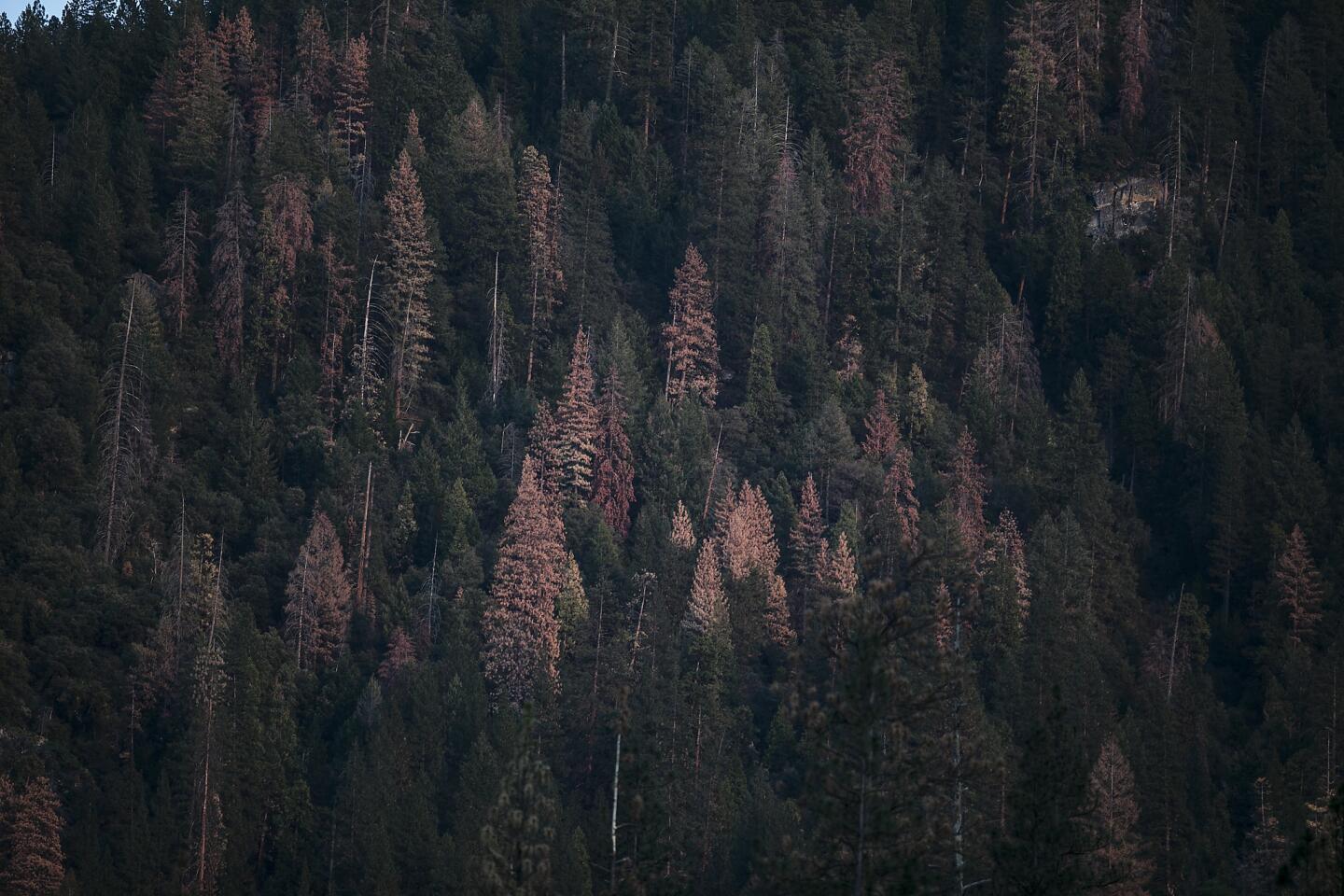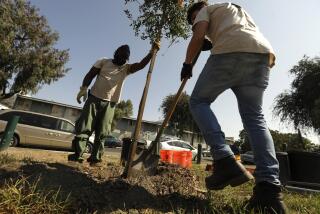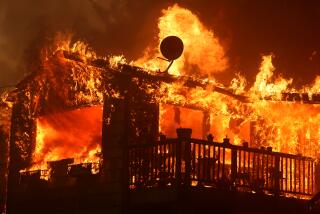Die-off of millions of California trees concentrated in Sierra Nevada
Most of the millions of trees dying in California forests because of the stateâs continuing drought are in the southern Sierra Nevada mountains, scientists say.
U.S. Forest Service scientists say more than 12 million trees in the stateâs forests have perished during the drought, and the die-off is expected to continue. A series of aerial surveys conducted in April mapped the widespread devastation.
Tom Coleman, forest entomologist for the U.S. Forest Service, discussed the issue Wednesday in an email exchange with the Los Angeles Times.
What part of the state has seen the most devastation in terms of tree life?
Currently, pine mortality is highest in the southern Sierra Nevada ... In mid-April, [U.S. Forest Service Biologist Jeffrey Moore] mapped an estimated 10.45 million dead trees during these surveys. In Southern California, the Mt. Pinos Ranger District of the Los Padres National Forest has seen the greatest tree mortality associated with drought and pine bark beetles.
How many trees have died in Southern California?
An estimated 2 million trees.
Why are so many trees dying?
Consecutive years of drought have stressed pine trees throughout California, making them more susceptible to attack from pine bark beetles. When a pine is healthy, it can successfully fight off attacks from pine bark beetles by âpitching outâ the beetle from the tree. During a drought, pine trees are too water-stressed to prevent bark beetles from attacking en masse.
What kills more trees, drought or fire?
Drought stress is predisposing pines to attack from pine bark beetles. In California, we have several native species of pine bark beetles that are killing numerous species of pines. Pine bark beetles kill more trees than wildfire every year, regardless of the drought conditions.
Should we expect it to continue?
I expect elevated levels of pine mortality to continue as long as the drought continues, especially in areas with current pine bark beetle activity.
What about the trees that havenât died and their chances for surviving?
I am more concerned about the forest stands near or adjacent to areas with current pine bark beetle activity. If the drought continues, I expect the pine bark beetles to move into these forest stands.
What does this mean for our state and forests?
Elevated pine mortality in the communities, along wildfire corridors and in high-use sites in the national forests can increase safety hazards for people, reduce aesthetics, impact forest management objectives and require additional funding for tree removals.
For breaking news in California, follow @VeronicaRochaLA.
More to Read
Sign up for Essential California
The most important California stories and recommendations in your inbox every morning.
You may occasionally receive promotional content from the Los Angeles Times.











